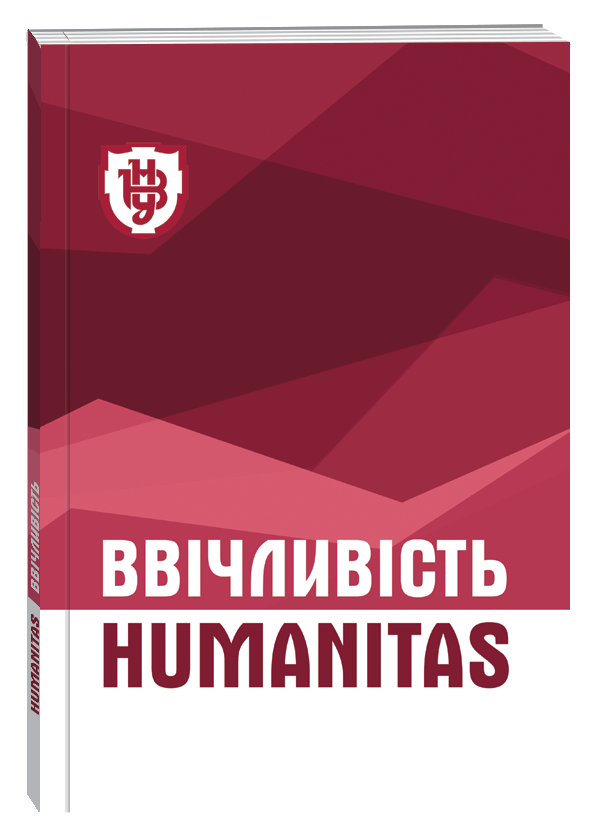THEORETICAL AND METHODOLOGICAL ASPECTS OF PREPARING FUTURE SOCIAL WORKERS FOR SCIENTIFIC RESEARCH IN SOCIAL WORK
DOI:
https://doi.org/10.32782/humanitas/2025.2.13Keywords:
training, future social workers, competencies, programmatic learning outcomes, researchAbstract
The features of theoretical and methodological preparation of future social workers for conducting research in the social sphere are considered. The importance of forming theoretical and practical knowledge of scientific methods, principles, and methodology of research in the social sphere in higher education is emphasized. The levels of methodological analysis are highlighted and the possibilities of the primary discipline «Theory and Methods of Scientific Research in Social Work» in the development of future social workers' general and special competencies, as well as methods of preparing reports and writing scientific articles, etc. are determined. It has been found that practical mastery of various forms of research activity plays an important role in the learning process. In particular, this involves studying the forms and methods of working with scientific sources, as well as developing skills for the effective search of scientific information. It has been established that an important role in the training of future social workers is assigned to their mastery of programmatic learning outcomes and the formation of social skills. The role of independent work of higher education applicants in the process of preparing them for research in social work is characterized. The purpose of the article is to highlight the theoretical and methodological foundations of training future social workers to conduct research in social work, the formation of their integral competence, general and special competencies, program learning outcomes and the role of independent work and opportunities for the formation of research competence in the process of training higher education students. Attention is focused on the importance of mastering the programmatic learning outcomes by future social workers, in particular, the following: critically evaluate the results of scientific research and various sources of knowledge about social work practice, use foreign sources in performing research and applied activities, express themselves in a foreign language, both orally and in writing; collect and analyze quantitative and qualitative empirical data; use general and specialized software to solve professional problems.
References
Букач М. М., Попова Т. С., Клименюк Н. В. Основи наукових досліджень у соціальній роботі : навч. посіб. / за ред. М. М. Букача. Миколаїв: ЧДУ ім. Петра Могили, 2009. 2016. 284 с.
Всеукраїнська програма ментального здоров'я «Ти як?». URL: https://howareu.com/ (дата звернення: 05.04. 2025).
Державний стандарт соціальної послуги соціально-психологічної реабілітації осіб із залежністю від наркотичних засобів чи психотропних речовин: затв. наказом Міністерства соціальної політики України від 01 жовтня 2020 р. № 677. URL: https://zakon.rada.gov.ua/laws/show/z1218-20#Text (дата звернення: 05.04. 2025).
Дослідження у соціальній роботі : Антологія / упор. Т. Семигіна. Київ : Академія праці, соціальних відносин і туризму, 2021. 230 с.
Концепція та методологія реалізації науково-дослідницької діяльності суб’єктів навчально-виховного процесу університетів : монографія / О. І. Бульвінська та ін.; за ред. О. Г. Ярошенко. Київ : Інститут вищої освіти НАПН України, 2016. 178 с.
Освітня програма (освітньо-професійна програма) Соціальна робота другого (магістерського) рівня вищої освіти за спеціальністю 231 СОЦІАЛЬНА РОБОТА галузі знань 23 СОЦІАЛЬНА РОБОТА. Освітня кваліфікація: Магістр з соціальної роботи. Умань, 2024. URL: chrome-extension://efaidnbmnnnibpcajpcglclefindmkaj/https://fspo.udpu.edu.ua/wp-conten (дата звернення: 01.04. 2025).
Освітня програма (освітньо-професійна програма) Соціальна робота другого (магістерського) рівня вищої освіти за спеціальністю 231 СОЦІАЛЬНА РОБОТА галузі знань 23 СОЦІАЛЬНА РОБОТА. Освітня кваліфікація: Магістр з соціальної роботи : проєкт, Умань, 2025. URL: chrome-extension://efaidnbmnnnibpcajpcglclefindmkaj/https://fspo.udpu.edu.ua/wp-content/upload (дата звернення: 01.04. 2025). : https://surli.cc/lmqllx
Про затвердження плану заходів на 2024–2026 роки з реалізації Концепції розвитку охорони психічного здоров’я в Україні на період до 2030 року : розпорядження Кабінету Міністрів України від 24 червня 2024 р. № 572-р. URL: https://zakon.rada.gov.ua/laws/show/572-2024-%D1%80#Text (дата звернення: 05.04. 2025).
Професійний стандарт «Фахівець із соціальної роботи» : затв. наказом М-ва розвитку економіки, торгівлі та сільського господарства від 20.06.2020 р. № 1179. URL: https://register.nqa.gov.ua/uploads/0/88-1179.pdf (дата звернення: 05.04. 2025).
Професійний стандарт «Фахівець із супроводу ветеранів війни та демобілізованих осіб» : затв. наказом Міністерством у справах ветеранів України від 31 грудня 2024 р. № 508 URL: chrome-extension://efaidnbmnnnibpcajpcglclefindmkaj/https://register.nqa.gov.ua/uploads/0/706-ilovepdf_merged_13.pdf (дата звернення: 10.04. 2025).
Робоча програма навчальної дисципліни ОК 07 Теорія та методика наукових досліджень у соціальній роботі. Умань, 2024. URL: https://surl.li/xyvxyz (дата звернення: 10.04. 2025).
Робоча програма навчальної дисципліни ОК 07 Теорія та методика наукових досліджень у соціальній роботі : проєкт . Умань, 2025.
Сапожников С. В. Деякі аспекти формування дослідницької компетентності студентів закладів вищої освіти України у процесі фахової підготовки. Фізико-математична освіта. 2019. Випуск 3(21). С. 127-132.
Семигіна Т. Чи завжди цифри мають значення: огляд парадигм дослідження у соціальній роботі. Traektoriâ Nauki = Path of Science. 2020. Vol. 6. No 7. С. 3001–3011.
Семигіна Т. В. Використання дискурс-аналізу в дослідженнях із соціальної роботи. Наукові записки. Т. 19. Спеціальний випуск. 2001. С. 322–325.







